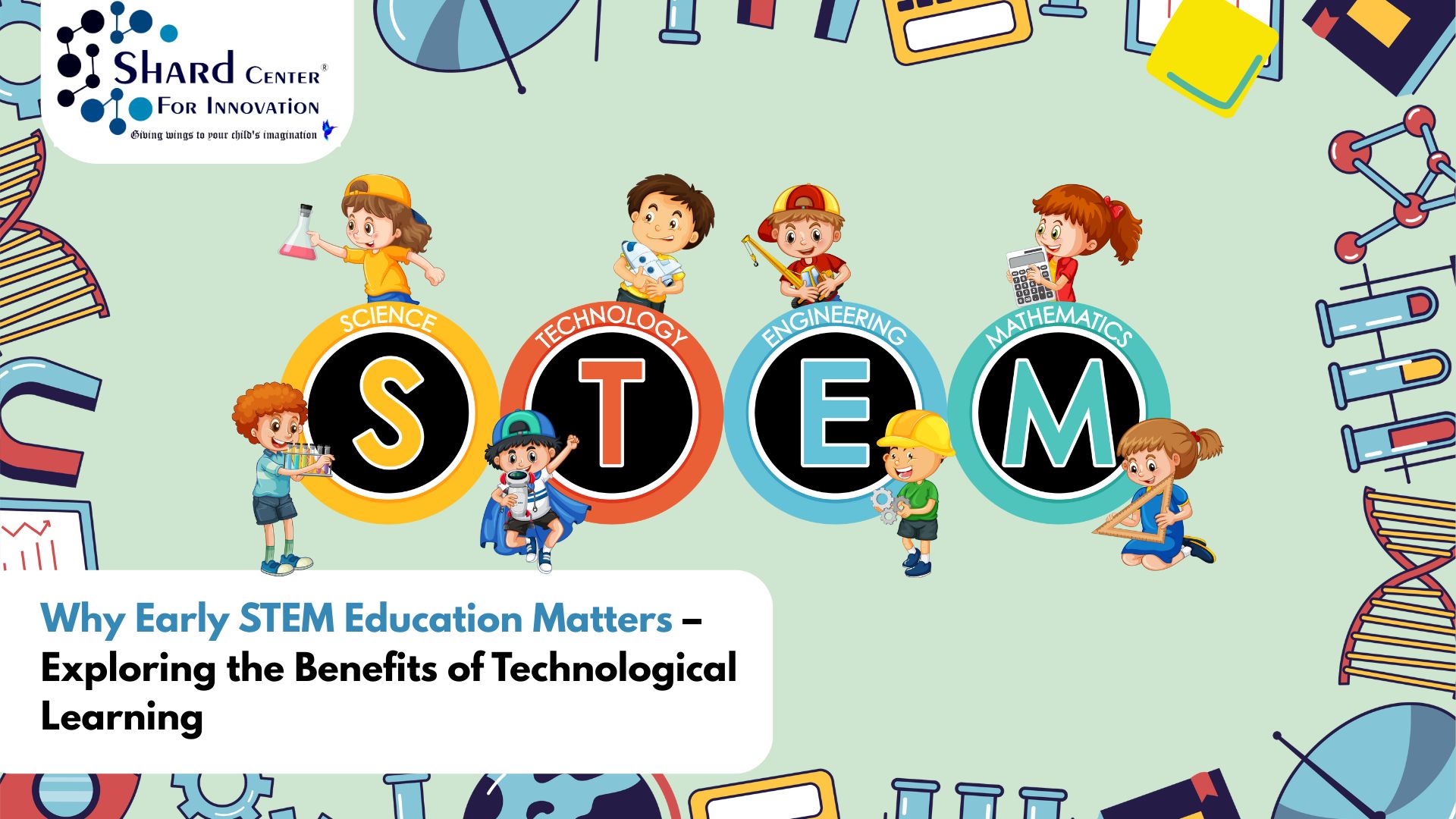The early ages of 5–14 are crucial for young children to pick up learning from their environment, especially linguistic, scientific, and artistic abilities that set the stage for their subsequent talents and inclinations in adulthood. During these impressionable years, an education that introduces them to practical training from the science, technology, engineering, and mathematics (STEM) fields enhances their creativity, inclination, and ability in these areas. This ensures that children, too, remain at the frontier of knowledge and develop their skills in the latest technological changes of our society. An education in robotics, machine learning, and AI skills, which is especially designed for young learners, ensures their holistic learning and aptitude, enabling their success in independent as well as institutional scientific learning in the future.
Let us understand the many benefits that an early technological education brings to the lives of young children in more detail.
Benefits of a Tech Education for Young Learners
Through the various challenges that a well-prepared curriculum brings before children, it enables them to develop critical thinking skills, solve challenges constructively, and develop an affinity for learning. Knowledge of AI and Robotics encourages creativity, and working together on projects leads them to bond well and learn from each other. This encourages their active learning from peers and course instructors and develops problem-solving abilities while contributing to their overall development as young individuals.
1. Critical Thinking and Problem-Solving Skills
Due to the intellectually stimulating nature of STEM courses, skills in critical thinking are learned through various activities and experiments. For example, assembling and developing their own circuit board through Robotics Courses encourages these skills as children learn to apply instructions by themselves to achieve the activity’s aims. This encourages early cognitive development by aiding the brain’s analytical thinking and reasoning abilities as well as motor processing skills. Similarly, IoT Courses for Kids and teens and Hands-on Machine Learning Classes simplify complex technological concepts and foster their curiosity.
2. Collaboration and Social Skills
Early peer interactions are crucial for developing an individual’s social skills and identity formation. The various hands-on activities and experimental learning offered by STEM courses to children ensure that they learn essential social skills and the ability to collaborate to solve problems together. As children learn from their peers as much as they learn from their parents, this ensures a steep overall learning curve and individual expression.
3. Ensuring Success in Future Scientific Education
An introduction to STEM courses at a young age not only hones the interest of students in these domains but also deepens their knowledge and understanding, setting the stage for future success in science and technology in the academic and professional environments. Learning concepts from Robotics, AI, IoT, Drone Technology and Machine Learning courses demystifies advanced technological learning in the future, further intriguing and preparing children for career opportunities in STEM fields.
4. Time Management and Self-Expression
Supplementary technological learning encourages children to learn time management and balance play and learning. By learning and developing robotic models in their own unique ways, Robotics and Automation courses teach them to express themselves through the experiments and encourage them to imbibe scientific thought and rational thinking as well as refine their innate creativity. These skills can prove to be immensely helpful to them beyond academics.
Conclusion
An early STEM-led education offers several benefits to young students, such as teamwork and collective problem-solving, cognitive development by augmenting mathematical and reasoning abilities, creative self-expression, and time management skills. By simplifying technological concepts through well-curated and student-oriented courses on AI, ML, Drone Technology and Robotics, they are introduced to the latest technological changes, which can demystify and positively develop their interest in these STEM fields and prepare them for future academic and professional success.
At SCIL, we offer courses on AI, ML, Robotics, Drone Pilot Training, 3-D Printing, IOT and Design Thinking, Data Science as well as the Young Scientist Programme in India, through a low-investment franchise business model that is meticulously designed to ensure that children are fully equipped with the necessary skills to advance their technological knowledge. Offering the opportunity to be the top profitable robotics and AI franchise business in India, SCIL offers Supervised Machine Learning Training and an Artificial Intelligence Course developed by experts in these fields. We are the best STEM education franchise business opportunity to consider when choosing AI And ML Courses for kids and professionals in India due to the flexible course content, which caters to both audiences.
Related Blogs:
- Drone Pilot Training Course 2025: Complete Guide for Beginners and Professionals
- The Rise of Profitable Robotics and AI Franchise Business in India
- Artificial Intelligence Training in India for Kids and School Students
- Top Robotic Course for Kids & Professionals in India
- Machine Learning Course in India—Explore Top AI and ML Programs in 2025
